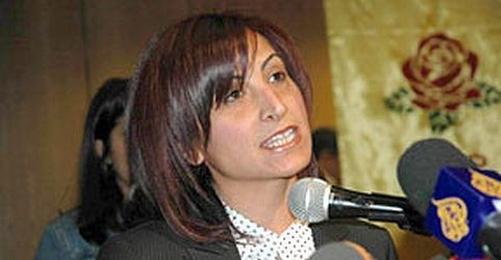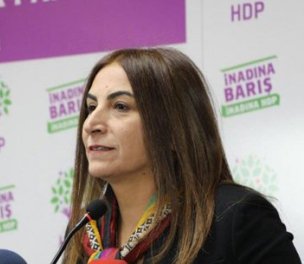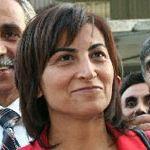The prosecutor of the Ankara 11th High Criminal Court, Harun Yüksel, demanded imprisonment of up to ten years for Kurdish politician Aysel Tuğluk on the grounds of "spreading propaganda for the PKK organization", the outlawed Kurdistan Workers Party. Tuğluk is currently banned from politics as the former co-chair of the Democratic Society Party (DTP), which was closed by the Constitutional Court in December 2009.
The prosecutor requested a two-count punishment according to article 7/2 of the Anti-Terrorism Law (TMY) on "spreading propaganda for a terrorist organization". Tuğluk is facing imprisonment of between two and ten years.
bianet talked to Tuğluk's lawyer, Mehmet Nuri Özmen. He said that they are going to prepare Tuğluk's defence for the coming hearing on 5 October.
In the hearing on Tuesday (6 June), prosecutor Yüksel claimed that Tuğluk's statement could not be evaluated within the borders of freedom of thought. "Taking into consideration the sensitive situation in the East and South-East, it is impossible to assess her statements which implied a legitimization of the PKK as within the scope of freedom of expression".
Sued for two speeches
Tuğluk is tried for a speech delivered at the DTP Extraordinary Congress held on 28 Feburary 2007 in the Kocatepe Culture Centre and a press release made at the DTP Headquarters on 2 March 2007. In her speeches, Tuğluk allegedly "did not recognize the PKK/KONGRA-GEL as a terrorist organization, she appreciated the illegal actions of the organization and referred to the [imprisoned] leader of the organization, Abdullah Öcalan, as 'respectable'".
Moreover, Yüksel stated that Tuğluk brought allegations to the agenda related to a supposed attempt to poison Öcalan. According to the prosecutor, with this statement Tuğluk conveyed the message to continue the terror even more violently.
Prosecutor sees himself in line with ECHR decisions
The prosecutor pointed out that Tuğluk spread propaganda for an armed terrorist organization by approving their illegal actions, publicly protecting the organization and its leader and glorifying the crimes committed by the organization. The prosecutor furthermore indicated that the punishment was in line with the case law of the European Court of Human Rights (ECHR) and referred to the decision concerning Leyla Zana given on 25 November 1997. (EÖ/VK)














